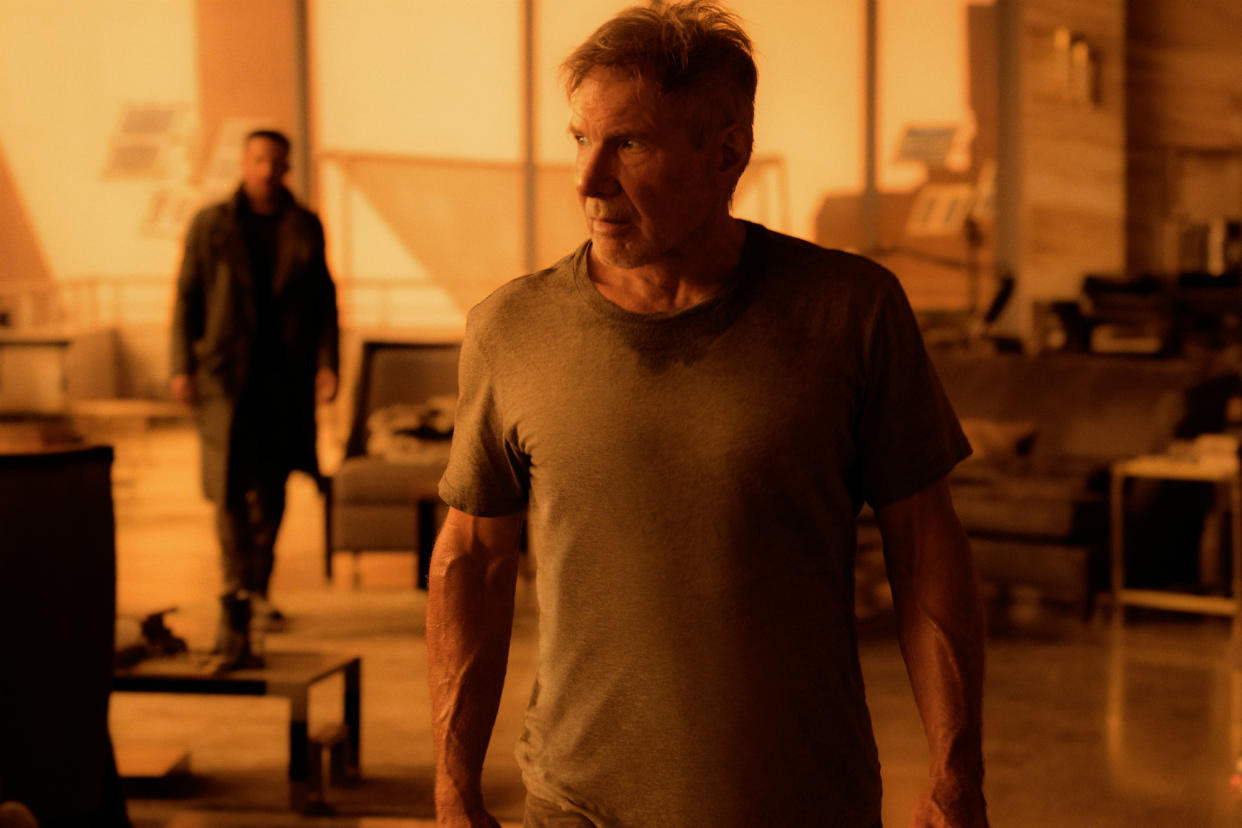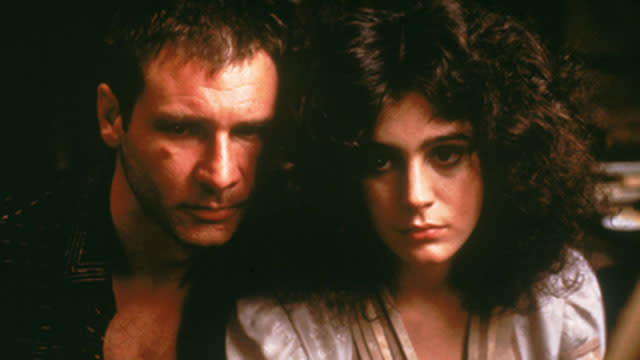Is Deckard a replicant? Director Denis Villeneuve explains how 'Blade Runner 2049' handles the great debate (spoilers!)

This story reveals major plot points of Blade Runner 2049, so please stop reading if you want to avoid spoilers.
Ridley Scott says there’s no doubt about it. But Harrison Ford vehemently disagrees. So, how does Blade Runner 2049 handle the biggest question of the saga: Is Ford’s android-hunting Rick Deckard an android himself?
First, let’s rewind a bit. When Blade Runner first arrived in theaters in 1982, the few folks who went to see the film in theaters didn’t seem to doubt the humanity of Harrison Ford’s rogue LAPD cop. Indeed, the major mystery from that initial version of the film centered on Sean Young’s android, Rachael. Deckard escapes with her to parts unknown in the so-called “happy ending,” but because replicants only had a limited lifespan, the lingering question was, how much of a future could she and Deckard really have together?

But that version of the film was not the one Ridley Scott intended to deliver. Warner Bros. recut the film following some poorly received test screenings and the director disavowed the version that wound up in theaters and gradually became a cult classic. Over the years, however, as alternate cuts surfaced — primarily a “director’s cut” based on Scott’s original workprint and released in 1992 and then the 25th-anniversary “final cut” in 2007, which finally gave Scott complete creative control — the clues started piling up suggesting that Deckard was indeed an artificial life form.
Scott wanted audiences to come away with the notion that Deckard was not human. He has explained in many interviews that Deckard’s unicorn dream (deleted from the theatrical release but restored in the later editions of the film) reveals a false memory implanted in the cop’s programming. That imagery, says Scott, proves Deckard’s provenance.
However, Hampton Fancher, who co-wrote the 1982 film and the new sequel, says he intended Deckard to be human. Likewise, Harrison Ford has always disputed his Blade Runner director’s vision.

Now, with Blade Runner 2049 in theaters, are we closer to getting a definitive answer? Not on your life.
When we asked Ford straight up at the film’s junket about whether his thoughts on the Deckard-is-a-replicant theory have changed since making 2049, the spoiler-averse star was circumspect. “Theory? I have intimate knowledge of the question, which I’m not prepared to share with you.”
Fortunately, 2049 director Denis Villeneuve was willing to explain his approach.
“I wanted to leave the ambiguity,” Villeneuve told Yahoo Movies. “I didn’t want to tell the audience what to think.”
While we learn within the first 10 minutes that Ryan Gosling‘s blade runner, K, is a next-gen replicant, Villeneuve is not so forthcoming about Deckard. Instead the filmmaker tantalizes viewers with clues (the return of Edward James Olmos’s Gaff with his origami unicorns and references to Deckard’s eyes, Jared Leto’s monologuing android maker playfully teasing Deckard about his humanity) open to interpretation. And it was all by design.
“I know Hampton believes [Deckard’s] human, and Harrison believe he’s human,” Villeneuve continued. “I went to see the film with Ridley when it was playing in London on Imax and after it ended, he turned to me and said, ‘See, now you know that he’s a replicant,'” Villeneuve recounted with a chuckle. “I said, ‘OK, Ridley, it’s your film, you can think whatever you want.’
“But as a fan of the original film I enjoyed the ambiguity and I did not want to ruin the mystery for fans.”
Blade Runner 2049 is in theaters now.
Watch Ryan Gosling and Harrison Ford disagree over accidental on-set punch:
Read more from Yahoo Entertainment:

